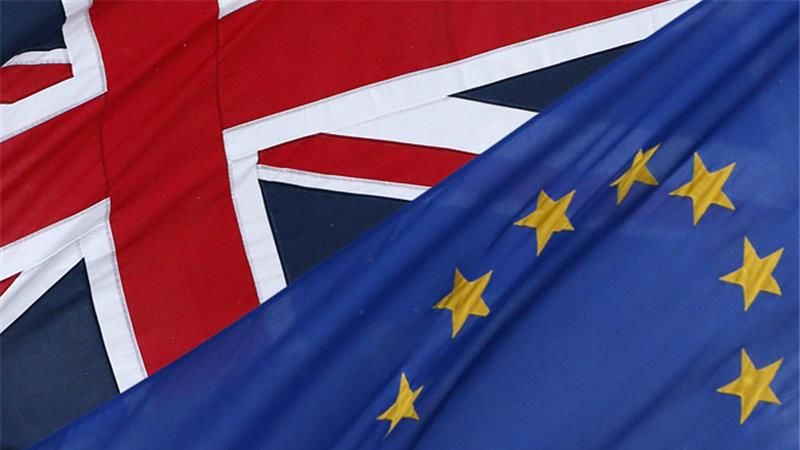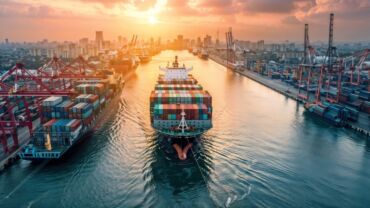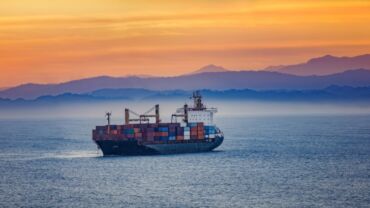In a recent webcast, a panel of Reuters international editors discussed how Brexit continues to roil both the United Kingdom and the European Union
Six months into Brexit, both the United Kingdom and the European Union continue to grapple with the repercussions of the U.K.’s historic breakaway.
In the U.K., new trade restrictions are still causing headaches for importers and exporters, and Downing Street has done little to ease growing tensions with Northern Ireland and Scotland. And in the E.U. itself, concerns that other member countries might follow the U.K. out the door are percolating in political circles, even though all witnessed the agony of the Brexit process and presumably understand the dangers involved.
In a recent webcast, The Future of Europe Post-Brexit, a panel of Reuters international editors discussed these and other topics, providing an overview of the issues and stories they expect to be covering in the coming months and years. The discussion was led by Reuters European Correspondent Gabriela Baczynska.
What will Boris do?
For Europeans, Brexit has become shorthand for many of the pressing economic and trade problems in the region, and many questions about the future remain.
Panelist Guy Faulconbridge, Reuters Bureau Chief in the U.K. and Ireland, said that one of the biggest questions of all is what U.K. Prime Minister Boris Johnson intends to do over the next few years with the power he has accumulated as a result of his successful Brexit campaign. “The question of what Boris does with his power goes to the heart of one of the riddles of Brexit,” Faulconbridge said, adding that the original impetus for Brexit was the idea that the U.K. needed to be fundamentally reformed in order to keep up with emerging modern economies, particularly in Asia.
What we’ve seen from [UK PM] Boris [Johnson] so far is a complete lack of ambition for any sort of reform that is going to transform the U.K.
That’s not happening, however, at least not yet, Faulconbridge explained, which is one of the reasons that Dominic Cummings, Johnson’s former chief adviser and the so-called “architect” of Brexit, has gone public with his dismay over Johnson’s leadership.
“What we’ve seen from Boris so far is a complete lack of ambition for any sort of reform that is going to transform the U.K.,” he observed. “So, when you look at the falling out that you see between Cummings and Johnson right now, there’s actually a much deeper divide there, which is essentially about what Brexit should have been, or should be, for the U.K.”
Simmering tensions
Reuters European Economics Editor Mark John, another panelist, noted that concern over Brexit’s impact on the E.U. covers a wide range of anxieties — from those who are afraid other countries might defect from the E.U., to those who insist that Brexit has simply reinforced the value of membership in the E.U., and to those who see the shifting political winds in such increasingly autocratic countries as Turkey and Poland as a harbinger of potential challenges to so-called “European values.”
John cited the collapse of recent trade talks between the E.U. and Switzerland as evidence that many relationships between countries in the E.U. are contentious at best. “While not as dramatic as Brexit, the [failed talks] show another established democracy having difficulty with some of the conditions to the E.U. single market,” he said.
The Northern Ireland problem
Likewise, tensions among the E.U., the U.K., and Northern Ireland continue to be a hot point of contention, with intransigence on all sides leading absolutely nowhere.
Northern Ireland is upset for several reasons, Faulconbridge explained. Not only does the country object to any kind of border between itself and the U.K., many people in Northern Ireland fear that Brexit will ultimately unravel the 1998 peace accords that halted the 30 years of conflict known as “the Troubles.” During Brexit negotiations, however, “the E.U. didn’t want Northern Ireland to serve as a back door into its single market,” he said. As a result, the E.U. insisted on a border — which is why an imaginary line was drawn in the middle of the Irish sea and “fishing rights” became one of Brexit’s hottest flashpoints.
Indeed, the ongoing dispute over fishing rights in the Irish Sea has also affected negotiations for a financial services deal.
Another panelist, Reuters Financial Editor Rachel Armstrong, explained that because the Brexit agreement reached on Dec. 24, 2020 did not address the financial services sector, London-based financial institutions can no longer trade Euro-zone stocks and bonds or conduct financial business without involving an E.U. “chaperone”; and banks that want to do business in the E.U. must now have a physical presence wherever they wish to operate. However, in what has come to be called the “fish for finance” dispute, France is currently refusing to consider a financial services deal until the U.K. grants fishing rights to E.U. fishermen in the Irish Sea.
If you speak to people here in the finance industry, they describe Brexit as a slow puncture.
Despite the lack of a finance deal, however, the feared exodus of several-hundred-thousand finance jobs from London has not occurred, Armstrong said. A few thousand finance jobs have left London, she noted, but finance is a sector that employs roughly half a million people. “If you speak to people here in the [finance] industry, they describe Brexit as a slow puncture,” she said. “What firms have done for the moment is that they’ve moved the minimum people they need to move, they’ve moved the minimum number of assets they need to move, and now they’re basically waiting to see what happens.”
In the meantime, money is flowing from London to such cities as Amsterdam and Frankfurt, though “the big winner is New York,” she said.
Going it alone
On the international front, the U.K. is also discovering that it doesn’t have as much negotiating power as it had hoped, said Faulconbridge. Though the U.K. has secured free-trade deals with 30 or so countries, most of them small, any potential trade deal with the U.S. has been put on hold by the Biden administration, and negotiations with such historic allies as Australia haven’t gone as well as expected.
As part of the E.U., the U.K. had more negotiating power, but as a standalone nation, the country’s $3 trillion economy does not give it nearly as much leverage internationally. Consequently, the U.K. government is having to make “hard compromises,” he said.







